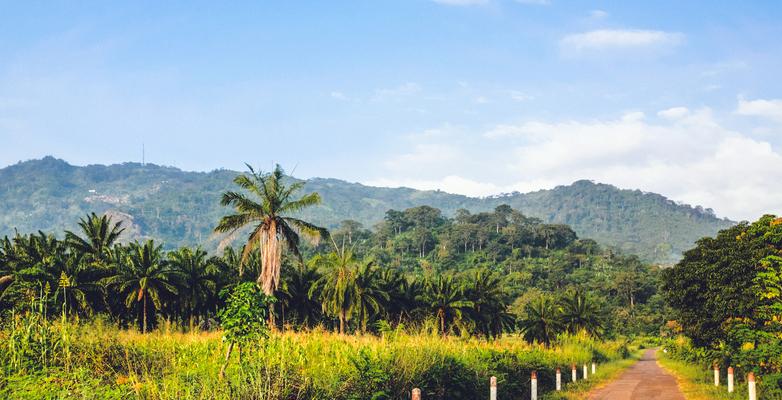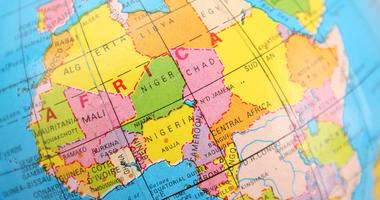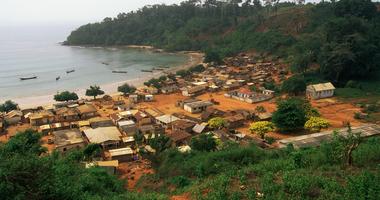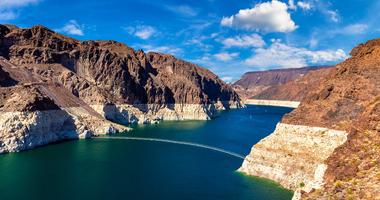
West African Climate Activists at the Forefront of the Movement for Climate Justice
Advocates in the region are inspiring action at home and around the globe to promote an equitable, sustainable future.
West Africa is experiencing climate change at rates higher than the global average, despite contributing only minimally to historic and current global emissions. Niger, for example, is ranked by Notre Dame researchers as having the world’s third highest vulnerability to the climate crisis, despite contributing less than 0.1% of the world’s 2021 emissions.
Communities in West Africa are subject to climate change’s intensifying impact on heat, drought, floods, sea level rise, migration, conflict, food insecurity, and more. Despite these dismal outlooks, people in the region are mobilizing to raise community awareness and inspire the national and international action necessary to protect their communities.
Climate Education
According to a 2022 public opinion poll conducted by the Yale Program on Climate Change Communication, two of the four countries in the world with the highest rate of individuals who have never heard of climate change - Benin and Nigeria - are located in West Africa. This correlates with low levels of “climate change literacy” throughout the region.
However, once climate change was explained to respondents, high rates believed that action needed to be taken - 75-89% of West African respondents identified climate change as personally important, and 60-74% believed that climate change should be a high or very high government priority in their country (with ranges expressing differences in percentages from country to country).
![West African forest. “Young people throughout West Africa aren’t just learning about the climate crisis - they’re advocating for change.”]](/sites/default/files/styles/40_percent_wide/public/2023-07/Climate%20Young%20People.png?itok=zcCaVTc4)
These data points show that though West African communities have limited access to the resources and education necessary to understand the root cause of the environmental dangers they are facing, many believe that action must be taken once they learn about the subject. Learning about the climate crisis can also support individuals’ ability to build resilient livelihoods, as education is linked with greater adaptive capacity in the face of environmental and economic climate shocks.
The mobilizing power of knowledge is why activists in the West Africa region are using their power to educate communities about the climate crisis.
Liberian activist Ezekiel Nyanfor’s mission is to educate as many young Africans as possible and thus empower them to get engaged in climate action. To do so, he developed a free online resource, called the “Africa Climate Ambassador Toolkit.”
“I was never taught about climate change in school or at home. This means thousands of young people are also still in the dark,” said Naynfor. “My goal is to have all of them well-informed and properly grounded with knowledge.”
Ghanaian activist Chibeze Ezekiel is similarly focusing on using education to drive people to fight for political change. In 2016, he helped steer his nation away from new coal power plant construction by educating communities on coal’s long-term dangers. Now, his work focuses on educating young people about the future dangers of the climate crisis and the promise of using clean energy to industrialize the national economy.
Young Voices Leading the Way
Young people throughout West Africa aren’t just learning about the climate crisis - they’re advocating for change. Many activists, like Senegal’s Fridays for Future co-founder Yero Sarr, first get involved in climate activism due to concerns about the future awaiting their generation.
The African continent has the youngest population in the world. Today, the median age in West Africa is just 17.4 years old, compared to a global median age of 30.5. Youth in the region are among the most likely in their own nations and in the world to experience the adverse future impacts of climate change.
West African youth mobilization in the fight for a better future can thus be an incredible force for change.
Youth activists are using everything from slam poetry to school-walk-outs to encourage people from all generations to get engaged in fighting the climate crisis. And they aren’t just inspiring change in their own countries - they’re inspiring climate leadership around the world.
Ghanaian youth activists had a strong presence at COP 27, including a widely covered speech delivered by 10-year-old activist Nakeeyat Dramani Sam. Sam spoke on the topic of loss and damage, a concept which would require major emitters to financially support the countries in the Global South when they experience climate-intensified natural disasters. Just days after Sam delivered her speech, world leaders made the historic decision to establish a loss and damage fund.
“We are the future leaders, so when we talk people listen,” said Sam.
Shrinking the Gender Gap
Youth aren’t the only individuals at particular risk of climate vulnerability. Throughout the African continent, there is a huge gender gap in individuals’ experience of the climate crisis, with women bearing the brunt of its effects. This is due to a variety of factors, among them women’s traditional responsibility to collect water and provide food, women’s economic dependence on vulnerable livelihoods like agriculture, and land tenure laws that bar women from owning or inheriting land.
![Learning about the climate crisis can support individuals’ ability to build resilient livelihoods, as education is linked with greater adaptive capacity in the face of environmental and economic climate shocks.”]](/sites/default/files/styles/40_percent_wide/public/2023-07/Climate%20Learning.png?itok=JdSfxSPl)
In response to gender disparities, women climate activists in West Africa are advocating for gender equality and environmental justice.
In Nigeria, women’s climate activism dates all the way back to the 1990s, when rural women led protests against environmental harm caused by Shell’s oil extraction in the Niger Delta. Now, the daughters of these early activists are joining the fight. Martha Agbani, whose mother protested against Shell in the 1990s, has established a tree nursery to help clean up the environment and support women in the process. In this nursery, women can plant trees to sell to Shell, as the company is in the process of replanting the mangroves destroyed by Shell oil spills in the early 2000s.
The impacts of Agbani’s project are far-reaching – the mangroves will provide habitats for wildlife, support local livelihoods, and limit the impacts of climate change, all while economically supporting local women. In the words of Agbani, “I need to help my women stand.”
Today, women in West Africa are using the power of grassroots organizing to come together and plan for a safer, more resilient world. In October 2022, the Women’s Climate Assembly hosted women community leaders and social movement activists from 11 countries across West and Central Africa. As the largest-ever women’s climate gathering in Africa, it provided an opportunity for women to join together and build new frameworks and strategies of resistance.
West African women aren’t just shaping climate action from the sidelines, they are demanding seats at decision-making tables.
As explained by the Senegalese delegation, “Women must be involved in negotiations wherever there are decisions to be made about oil and resources. We women are responsible for life—we handle households, livelihoods, and everything essential for daily survival and so we must be present in negotiations too.”
Join the Global Fight Against Climate Change
Feeling inspired by West Africa’s climate leaders? You can take action too!
Start by signing up for our email list, where you will receive updates on the latest ways to get involved in the movement for climate solutions.




